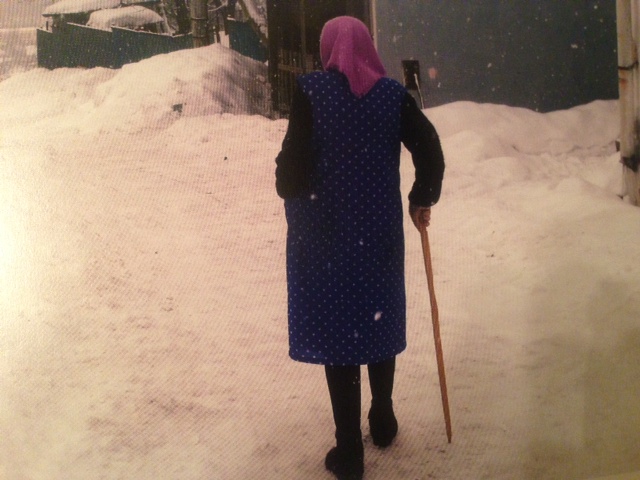20 New Year’s Dont’s for The Sick and Bedridden: Part 3

1. Don’t overstay your welcome and pull from the minimal energies they have to sustain their life. 90 minutes is as long as they can tolerate at any one sitting.
2. Don’t Chatter and talk to fill the silence. Let void and space be OK.
3. Don’t fill their space with YOUR holiday traditions. Be minimalistic. They cannot digest most of the symbols of YOUR season. 3 Things that effect 3 of their senses are almost too much for them. So remember if you bring a small decorated and lit Christmas Tree you have already used up your total of 3: visual lights and colors, smell with the pine smell, and touch when they hold or touch it.
4. Don’t bring in the whole clan into their room. 3 People at any one time is the rule, and even that can be overwhelming. If you bring a child it counts for two because of their energy, heat and fast movement.
5. Don’t be quiet just because they cannot communicate to you in return. Hearing is the last sense organ to decline. They can receive you even if they cannot respond back.
6. Don’t use their room as a picnic ground, a TV watching station, or a place to reconcile old emotional wounds. Don’t use their vulnerability to dump your emotional litter on them or resolve differences between you or your siblings or other family members.
7. Don’t use their room as a place to bond with their hired caregivers, nurses or bedmates and family in the adjacent bed, to fill the gap and compensate for the discomfort, slow pace or lack of communication. Communicate with them outside of your sick one’s room.
8. Don’t show verbally or non-verbally your disgust for the smells in their room. Let the sick have their dignity and honor when you enter their vulnerable space. They have no control over the smells and they know it. It is embarrassing.
9. Don’t leave humor out of the most serious of situations. Humor and laughter even at the most mundane activity is a spiritual gift. Even reading the comics in the newspaper, telling them a joke or relaying a funny story can be a way to break up stagnation and aerate thoughts, grief, loss and physical weakness.
10. Don’t let their fragility stop you from touching them. Touch their hands gently, stroke their cheek, rub their feet or ears. Gently. Make them feel like they are not lepers and untouchable.
11. Don’t forget to tell them: “I love you.” “Forgive Me. I Forgive you.” “Thank you.” And “if this is your time I release you and you can go with love.” and say “goodbye.”
12. Don’t forget to leave a symbol of you, a letter, a surrogate “woobie” in your stead when you must leave your sick one’s bed. It is as if you are leaving them with your protection and a piece of yourself to watch over them when you must leave them to rest. (CHECK OUT the unique silken ‘Prayer Pocket’ from DrAvivaBoxer.com as an example.)
13. Don’t stay in their room because of your own unresolved guilt, fear, shock, despair, or anger. This is their sacred space and they cannot transform your emotions and schisms for you. They are using their own energies to feed themselves with spiritual food and cannot be distracted. If they attend to you for a moment or spark, consider it a windfall and a gift to you. Receive it with awe.
14. Don’t bring your pity to them masquerading as compassion. Your pity will weaken them even more, and make it more difficult to mitigate their physical limitations. It is emotional litter and makes the room heavy.
15. Don’t make loud noises with the closing of doors, clanging of trashcans, having loud TV programs, or have strong scents or strong light in their room. It is too much for their senses to digest and they cannot escape. It means they must shut down and go inward and recoil from you because of the environment being too much and too harsh for them.
16. Don’t try to heal them. Even ‘good’ healing measures can require their body to create homeostasis with the newly introduced energies to their body. They may not have enough energy to get their balance and find the new energies their rightful spot within them. Their resilience is low and it is hard to get their bearings even from slight changes. Resist the urge to make it better. Let them lead the way.
17. Don’t advocate for them with their attending medical staff in their presence. The amount of energy it takes to clarify their needs, while beneficial in the long run can exhaust and agitate the sick, if done in their presence. They hear everything. Do it outside of their presence. You can tell them later as a summary in a soft gentle way, when the time is right.
18. Don’t forget to wash your hands frequently. Hospital borne diseases can be transferred from patient to patient or from your hospital visit to your home. But at the same time don’t overdue the wiping down the environment to make the patient feel like a leper or to create fear for them in an environment they have little control. Wash the clothes you wear to the sick room when you return home.
19. Don’t forget to bring in the outside nature into their room. Open windows and let the air flow, and the sunshine in. Note verbally the changes in weather and the seasons so the patient feels part of the cycle of life. If possible wheel them outside to enjoy the sun, breeze and greenery.
20. Don’t use negative language around them. Look for reasons to use optimistic language even in the worst of situations that look bleak. It helps them focus on what is possible rather than what is impossible.
Remember that entering the room or the bed space of the sick or bedridden is akin to visiting their home, their place of worship, their dinner table. Ask yourself if you would do what you are doing if you were in their home at their table or at their alter of prayer. If not, you have your answer. Our sick and bedridden hold sacred spiritual treasures. If we are open to them we will receive one of their gems. If, in fact, your bedridden loved on is on the trajectory to their final end then slow down your pace with them. Don’t hurry their journey. Let them savor every last minute here in a physical and spiritual sense.
DrAvivaBoxer.com elevates and customizes end-of-life with products, services and education that insures a quality of death and a Happy Death.
Category: Blog Tagged: bedridden, Bereavement, blog, Comfort, death, Dying, Elderyly, health, Home, legacy, Patient, sick
Copyright © 2024 · All Rights Reserved ·

